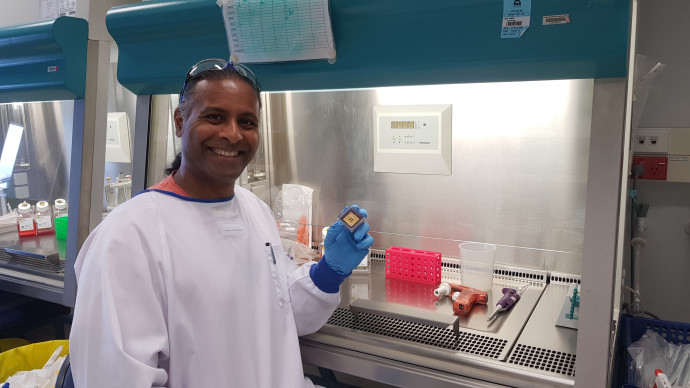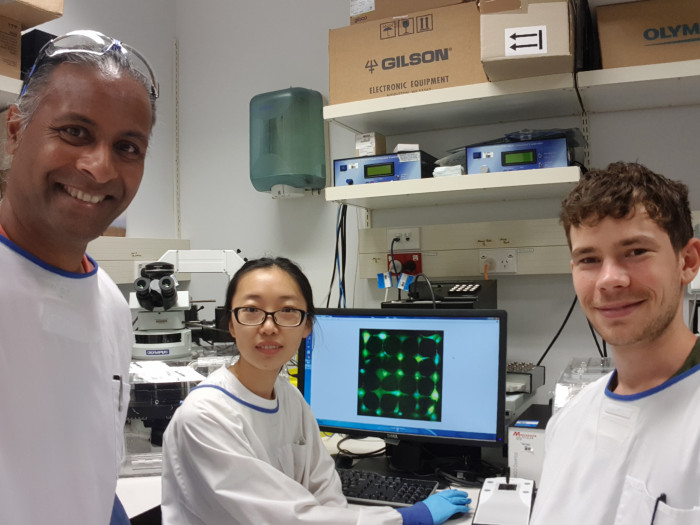Charles Unsworth

2020: Associate Professor Charles Unsworth, University of Auckland has been awarded a James Cook Research Fellowship in Engineering Sciences and Technologies for research titled ‘Understanding how aggressive adult brain cancer talks’
Biography
Associate Professor Charles Unsworth received his PhD in 1997 from the University of St Andrews before conducting postdoctoral research at the University of Edinburgh. He joined the Department of Engineering Science at the University of Auckland in 2002, where he established the Neural Engineering Group. He is a recently appointed Adjunct Professor of Neural Chip Technology at Tampere University in Finland, an Associate Investigator at the MacDiarmid Institute Centre of Research Excellence and has been involved in and received competitive research funding from the Ministry of Business, Innovation and Employment, the Health Research Council of New Zealand and the Marsden Fund.
Research summary
GlioBlastoma Multiforme (GBM) is the most aggressive and lethal primary brain cancer in adults. There is no known cure for GBM and even with treatment combining surgery, chemotherapy and radiotherapy, the long-term survival rate is low with only 5% of patients surviving for 5 years or more.
A fundamental pathway through which cells in the brain communicate is via calcium ion-channels, which allow calcium to pass in and out of a cell. However, in GBM the number of calcium ion-channels becomes dramatically upregulated. This in turn leads to modified calcium communication in the brain, known as ‘calcium codes’ which can rapidly trigger the transformation of normal cells into cancerous ones. Understanding the relationship of how each individual calcium ion-channel alters the calcium codes in networks of GBM tumour cells is relatively unexplored but critical to discovering new therapeutic strategies and approaches for treatment.
Associate Professor Unsworth and his neural engineering team have developed transformative silicon chip technology, which permits the precise construction of large-scale regular grid networks of human brain cells on a chip such that calcium communication can be mapped accurately from the single-cell level to large network scales. In this James Cook Research Fellowship, he will collaborate with overseas laboratories accessing precious medically-removed GBM tissue and state-of-the-art drug therapeutics. His vision is to extend the technology to aid clinicians to:
- gain new and valuable insights into how ion-channels regulate their calcium codes in multi-cellular GBM networks;
- determine how GBM cancer talks at the network level, and is affected by drug therapies.
Ultimately, this new knowledge seeks to contribute to furthering the development of therapeutic approaches in the clinical treatment of GBM.

Associate Professor Charles Unsworth, Si Li (PhD) and Nicholas Mellor (PhD) showing an image of a grid network of human astrocytes organised to single-cell precision on a silicon chip. Photo: Supplied
